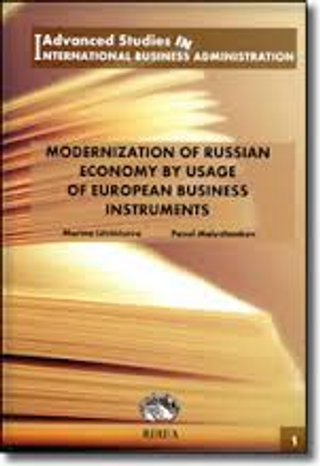?
Modernization of Russian economy by usage of European business instruments
This research aims to analyze the ways of modernization of economy on the base of modern occidental management, industrial and accounting practices diffusion in the enterprises of Russian Federation. In particular, the new emerging paradigm, the clusters, is analyzed. The relevance of this argument stands, on the one hand, in the increasing level of economic, political and trade relations between West and Russia and the growing weight of Russia on the international arena and, secondly, the lack of systematic material on this topic. Thus, the research aims to verify whether and how the intensification of these relations has an impact on corporate culture and "way of doing business" in Russia according to Western, in general, and Italian, in particular, best practices.
